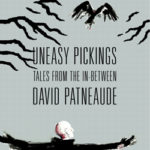The Seven Cs of Evaluating a Story
Seven Critique Points (Cs): Evaluating a Story Through a Writer’s Eyes
First, start with a book you’re reading or will be reading. Think of it as a rehearsal for judging your own work (which is harder, so you should also seek the opinions of trusted readers). The critique points can be valuable at several stages of your project—early-, mid-, and post-draft.
Context (Nuts and Bolts and Peripheral Stuff)—Where and when is the story set? Is it the right setting? What point-of-view (first person, limited third person, multiple third person, omniscient) does the author use? Is it consistent? What tense (past or present) is used? Is it consistent? Is the narrative linear (told in chronological order) or written out-of-sequence or with flashbacks? Is the format traditional, or is the story told in a less common way, such as diary, letters, poetry, or play?
Characters—How “real” is the main character, the point-of-view character (the character “telling” the story), the villain? How about supporting characters and “extras?” Are they complex, or cardboard? Does the reader care what happens to them?
Conflict—What’s the problem? Is it realistic? Is it significant enough to keep the reader interested (reading attentively and turning pages), but not so huge that someone or something else will have to come out of nowhere and resolve the whole problem for the protagonist (the infamous device known as deus ex machina—literally “god from a machine”)? Are there several problems? It’s good to keep your protagonist (and reader) busy and engaged.
Choices—What kinds of choices does the main character (hero) make when faced with the conflict or conflicts? Good? Bad? Foolish? Do the choices resolve the conflict(s), or add more complications? Difficult choices are what MAKES a character.
Changes—Has the hero changed as a result of facing the conflict? The main character should not be the exact same person at the end of the story as she or he was at the beginning, unless that is the author’s point (all this stuff has happened, and still this guy can’t or won’t change?).
Connection—Are all the loose ends tied up neatly? Are all the pieces of the puzzle there, and do they fit together? Has all the important stuff been resolved? If not, it should be obvious that the author has left things unsettled on purpose—an open-ended conclusion, say, where the reader is supposed to arrive at the resolution on his or her own, or a question left hanging as a setup for a sequel or more books in a series.
Compression—Has the author gotten rid of dead wood and tired language? Thrown out the parts of the story that the reader would skip? Will the reader skim through paragraphs or pages to get to the parts that really matter? Or is it a nice, tight story where the words ring, the voice (personality) sings, and everything is essential?
An Objective (Somewhat) Grading System to Use with the Seven Cs Criteria:
CONTEXT
Considerations: Is the story’s setting (time and place) right? Does the point of view (1st person, 3rd person limited/close, 3rd person multiple, omniscient) work? Is the tense (past, present) effective? Consistent? Is the narrative type a good match for the story (traditional, verse, epistolary, stage- or screenplay, etc.)? Points: Termites in the framework-l; Solid-2: Work of Art-3; Overall Score (1-3)___
CHARACTERS
Considerations: Is the main character complex? Flat? Do you care what happens to him or her? Why or why not? Other characters? Will you remember them? Points: Cardboard-1; Three dimensional-2; Unforgettable-3; Overall Score (1-3)___
CONFLICT
Considerations: Within the story’s genre, is the conflict realistic? Is it dramatic? Is it meaningful to the character (internally) and to the story? Does it step outside the boundaries of the story to apply to real life? Points: Who cares?-1; Big trouble-2; Insomnia-inducing-3; Overall Score (1-3)____
CHOICES
Considerations: Are the choices reasonable? Do they impact the story dramatically? Do the choices allow the character(s) to solve his/her/their own problem(s)? Points: Contrived-1; Realistic-2; Earth-shaking-3; Overall Score (1-3)____
CHANGES
Considerations: Do the characters change? Are the changes believable? Surprising? Points: No change, or pulled without reason or logic from up someone’s sleeve-1; Predictable-2; Eye-opening-3; Overall Score (1-3)____
CONNECTION
Considerations: Bothersome, unjustified loose ends remaining? Is the story satisfyingly wrapped up? Does the story come together perfectly yet unpredictably? Points: Whatever happened to…?-1; Sensible, tidy, tie-ins-2; Wow!-3; Overall Score (1-3)____
COMPRESSION
Considerations: Tired language? Repetition? Dead wood by the truckload? Adverb city? Lean, mean, captivating, writing machine? Nothing to distract from memorable words, passages, pages? Everything is essential? Does the voice (personality) of the writing shine through? Points: Where’s my chain saw?-1; Where’s my scissors?-2; I want more!-3; Overall Score (1-3)____
Book Title____________________ TOTAL SCORE (7-21)____
 Previous Post
Previous Post Next Post
Next Post




